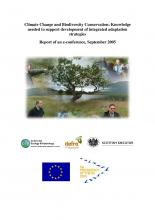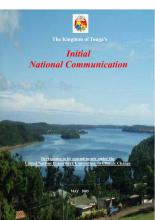IPCC special report on carbon dioxide capture and storage / prepared by working group III of the Intergovernmental Panel on Climate Change

Climate Change Resilience
Available Online
Davidson O.
,
Loss M.
,
Metz B
,
Meyer, L.A.
,
de Coninck H.C.
2005
This Intergovernmental Panel on Climate Change (IPCC) Special Report provides information for policymakers,scientists and engineers in the field of climate change and reduction of CO2emissions. It describes sources,capture, transport, and storage of CO2. It also discusses the costs, economic potential, and societal issues of the technology, including public perception and regulatory aspects. Storage options evaluated include geological storage, ocean storage, and mineral carbonation. Notably, the report places CO2capture and storage in the context of other climate change mitigation options, such as fuel switch, energy efficiency, renewables and nuclear energy. This report shows that the potential of CO2capture and storage is considerable, and the costs for mitigating climate change can be decreased compared to strategies where only other climate change mitigation options a reconsidered. The importance of future capture and storage of CO2for mitigating climate change will depend on a number of factors, including financial incentives provided for deployment, and whether the risks of storage can be successfully managed. The volume includes a Summary for Policy makers approved by governments represented in the IPCC, and a Technical Summary.The IPCC Special Report on Carbon Dioxide Capture and Storage provides invaluable information for researchers in environmental science, geology, engineering and the oil and gas sector, policymakers in governments and environmental organizations, and scientists and engineers in industry.


